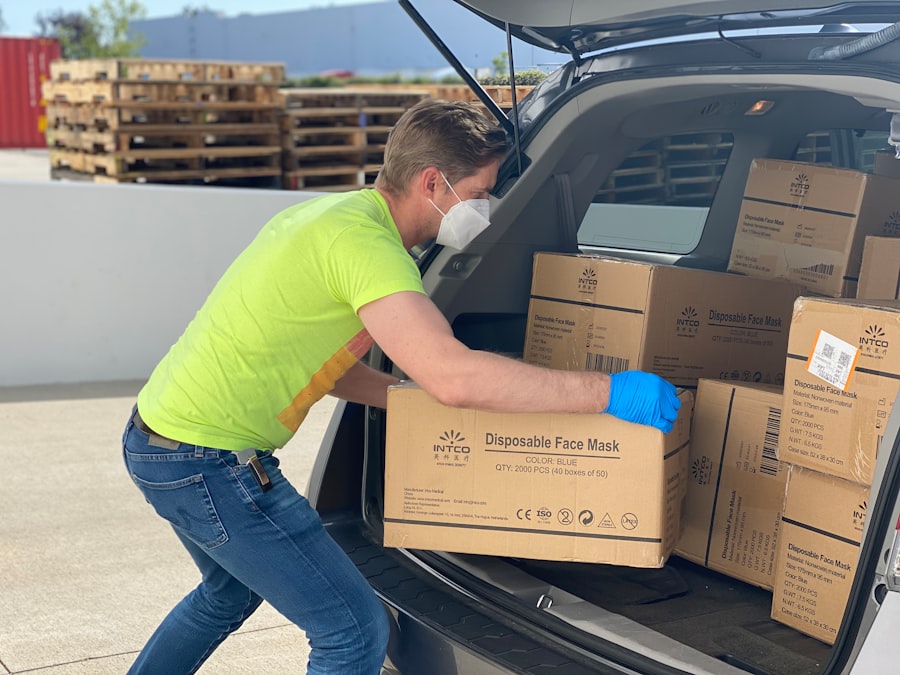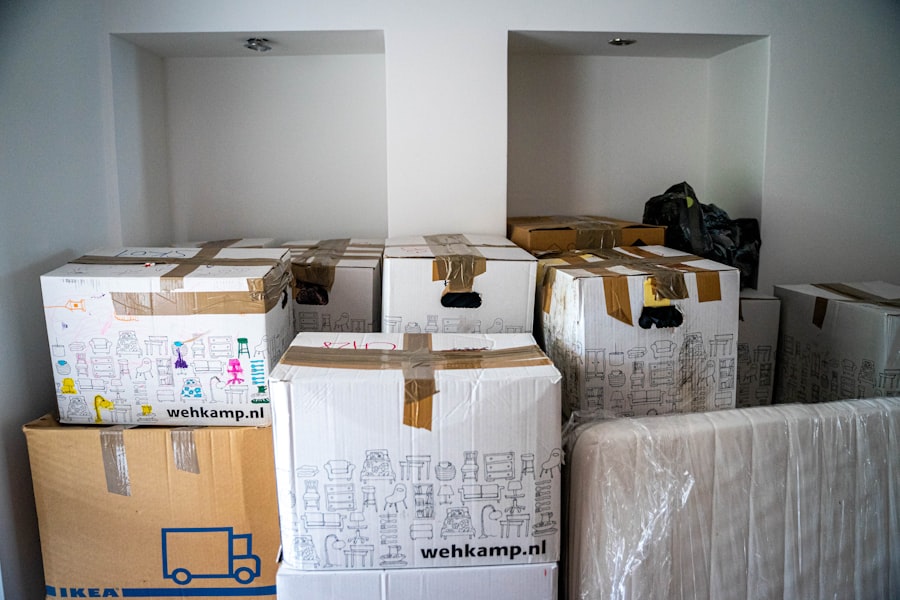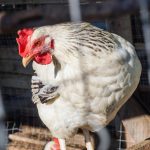Chickens exhibit natural behaviors that influence their egg-laying habits and nesting preferences. These birds seek secure and comfortable locations to lay their eggs, favoring dark, quiet, and secluded spaces that resemble their natural habitats. Chickens possess a strong instinct to create nests by scratching and manipulating bedding materials.
As social creatures, they often prefer to nest in proximity to other hens. Chickens typically follow a consistent routine, laying eggs at similar times each day. Observing their behavior and egg-laying patterns can provide valuable insights into their preferences and habits.
This information is crucial for designing an effective nesting area that aligns with their natural instincts and encourages them to use designated spaces for egg-laying. By understanding and accommodating these behavioral traits, poultry keepers can create nesting environments that meet the chickens’ needs and promote consistent egg-laying in desired locations. This knowledge is essential for optimizing egg production and maintaining the well-being of the flock.
Table of Contents
- 1 Designing a proper nesting area for chickens
- 2 Providing adequate space and ventilation
- 3 Using deterrents to discourage nesting in unwanted areas
- 4 Regular cleaning and maintenance of the nesting area
- 5 Providing suitable distractions for the chickens
- 6 Seeking professional advice if the problem persists
- 7 FAQs
- 7.1 What are some reasons why chickens poop in their nests?
- 7.2 How can I prevent chickens from pooping in their nests?
- 7.3 What are some tips for keeping nesting boxes clean?
- 7.4 Are there any natural deterrents to keep chickens from pooping in their nests?
- 7.5 What are the potential health risks of chickens pooping in their nests?
Key Takeaways
- Chickens have natural nesting instincts and prefer dark, secluded areas for laying eggs
- A proper nesting area should be designed with comfortable, clean, and well-ventilated spaces
- Adequate space and ventilation are essential to prevent overcrowding and ensure good air quality
- Using deterrents such as fake eggs or wire mesh can discourage chickens from nesting in unwanted areas
- Regular cleaning and maintenance of the nesting area is crucial to prevent the spread of diseases and parasites
- Providing suitable distractions such as perches or dust baths can help redirect the chickens’ nesting behavior
- If the nesting behavior persists, seeking professional advice from a veterinarian or poultry expert is recommended
Designing a proper nesting area for chickens
Creating a Comfortable Environment
When designing a nesting area for chickens, it’s essential to consider their natural instincts and behaviors. The nesting area should be dark, quiet, and secluded to mimic the natural environment where chickens would lay their eggs in the wild. Providing individual nesting boxes with low entrances can help create a sense of privacy and security for the hens.
Providing the Right Amenities
The boxes should also be lined with soft bedding material, such as straw or wood shavings, to encourage scratching and fluffing, which helps create a comfortable nest for the chickens. It’s also important to provide enough nesting boxes for the number of hens in your flock, as overcrowding can lead to competition and stress. The general rule of thumb is one nesting box for every 4-5 hens.
Preventing Predators and Keeping Clean
Additionally, the nesting boxes should be elevated off the ground to prevent predators from accessing the eggs and to keep them clean. By designing a proper nesting area that meets the natural instincts and behaviors of chickens, you can encourage them to lay their eggs in the designated space.
Providing adequate space and ventilation

In addition to a proper nesting area, chickens also require adequate space and ventilation in their coop to encourage them to lay their eggs in the designated nesting boxes. Overcrowding can lead to stress and competition among the hens, which may result in them seeking out alternative nesting areas. Providing enough space for the number of hens in your flock is essential in creating a comfortable and stress-free environment for them to lay their eggs.
Proper ventilation is also crucial in maintaining a healthy and comfortable coop environment. Good ventilation helps regulate temperature, reduce moisture, and remove odors, creating a more pleasant space for the chickens to nest. Adequate airflow can also help prevent the buildup of ammonia from chicken droppings, which can be harmful to the respiratory health of the birds.
By providing enough space and ventilation in the coop, you can create an environment that encourages the chickens to use the designated nesting area.
Using deterrents to discourage nesting in unwanted areas
Despite your best efforts in designing a proper nesting area, chickens may still be inclined to seek out alternative nesting spots. In some cases, they may choose to lay their eggs in undesirable locations, such as under bushes or in corners of the coop. In these instances, using deterrents can help discourage them from nesting in unwanted areas.
Placing fake eggs or golf balls in these spots can trick the chickens into thinking the area is already occupied, deterring them from laying their eggs there. Another effective deterrent is to block off access to unwanted nesting areas by using barriers or wire mesh. By physically preventing the chickens from accessing these spots, you can redirect them to use the designated nesting boxes instead.
It’s important to regularly monitor the coop and surrounding areas for any signs of alternative nesting behavior and promptly implement deterrents to discourage it. By using deterrents effectively, you can encourage the chickens to lay their eggs in the designated nesting area.
Regular cleaning and maintenance of the nesting area
Regular cleaning and maintenance of the nesting area are essential in encouraging chickens to use the designated space for laying their eggs. Dirty or soiled bedding can deter hens from using the nesting boxes, as they prefer clean and comfortable environments for laying their eggs. It’s important to regularly remove soiled bedding and replace it with fresh material to keep the nesting area clean and inviting for the chickens.
In addition to cleaning, it’s also important to regularly inspect the nesting boxes for any signs of damage or wear. Broken or damaged boxes can be unappealing to hens and may deter them from using them for nesting. Ensuring that the nesting boxes are in good condition and free from any obstructions can help encourage the chickens to lay their eggs in the designated space.
By maintaining a clean and well-kept nesting area, you can create an environment that is conducive to egg-laying behavior.
Providing suitable distractions for the chickens

Environmental Enrichment
Enriching their environment with perches, toys, and treats can help stimulate their natural behaviors and provide mental and physical stimulation.
Providing Suitable Distractions
Adding perches at different heights can encourage natural roosting behavior and provide a sense of security for the chickens. Toys such as hanging mirrors or pecking blocks can also provide entertainment and mental stimulation for the birds. Additionally, providing treats such as mealworms or fresh fruits and vegetables can help keep them engaged and satisfied.
Reducing Boredom and Encouraging Proper Nesting
By providing suitable distractions for the chickens, you can reduce boredom and encourage them to use the designated nesting area for laying their eggs.
Seeking professional advice if the problem persists
If despite your best efforts, the chickens continue to seek out alternative nesting areas, it may be necessary to seek professional advice. Consulting with a veterinarian or experienced poultry keeper can help identify any underlying issues that may be contributing to the problem. They can provide valuable insights and recommendations for addressing the issue and creating a more suitable environment for egg-laying behavior.
Professional advice may also be necessary if there are any health or behavioral concerns with the chickens that may be impacting their nesting behavior. A veterinarian can conduct a thorough health assessment of the birds and provide guidance on any necessary treatments or interventions. Additionally, an experienced poultry keeper can offer practical advice on coop management and environmental enrichment to encourage egg-laying behavior in the designated nesting area.
By seeking professional advice, you can gain valuable expertise in addressing any persistent issues with chicken nesting behavior. In conclusion, understanding the behavior of chickens is essential in designing a proper nesting area that meets their natural instincts and encourages them to lay their eggs in the designated space. Providing adequate space and ventilation in the coop, using deterrents to discourage nesting in unwanted areas, regular cleaning and maintenance of the nesting area, providing suitable distractions for the chickens, and seeking professional advice if the problem persists are all important considerations in addressing chicken nesting behavior.
By implementing these strategies effectively, you can create an environment that is conducive to egg-laying behavior and ensure that your chickens use the designated nesting area for laying their eggs.
If you’re looking for more tips on keeping your chicken coop clean and efficient, check out this article on where to put your chicken coop. It offers valuable insights on the best location for your coop to prevent chickens from pooping in the nest and other helpful advice for maintaining a healthy and productive flock.
FAQs
What are some reasons why chickens poop in their nests?
Chickens may poop in their nests due to overcrowding, lack of clean nesting material, or if they are feeling stressed or unwell.
How can I prevent chickens from pooping in their nests?
You can prevent chickens from pooping in their nests by providing enough nesting boxes for the number of chickens you have, keeping the nesting boxes clean and well-maintained, and ensuring that the chickens have access to a clean and comfortable environment.
What are some tips for keeping nesting boxes clean?
To keep nesting boxes clean, you can regularly remove soiled bedding, replace it with fresh bedding, and clean the nesting boxes with a mild disinfectant. You can also consider using materials such as straw or shavings that are less likely to become soiled quickly.
Are there any natural deterrents to keep chickens from pooping in their nests?
Some natural deterrents to keep chickens from pooping in their nests include placing fake eggs or golf balls in the nesting boxes, as well as using herbs such as lavender or mint, which can help repel chickens from nesting in certain areas.
What are the potential health risks of chickens pooping in their nests?
Chickens pooping in their nests can lead to dirty eggs, which can increase the risk of bacterial contamination. It can also create an unsanitary environment for the chickens, leading to potential health issues such as respiratory infections or parasites.
Meet Walter, the feathered-friend fanatic of Florida! Nestled in the sunshine state, Walter struts through life with his feathered companions, clucking his way to happiness. With a coop that’s fancier than a five-star hotel, he’s the Don Juan of the chicken world. When he’s not teaching his hens to do the cha-cha, you’ll find him in a heated debate with his prized rooster, Sir Clucks-a-Lot. Walter’s poultry passion is no yolk; he’s the sunny-side-up guy you never knew you needed in your flock of friends!







